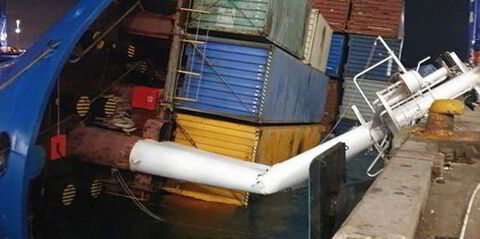Seafarers have gone missing or died after being transferred to vessels against their wishes, Indian maritime officials have warned.
They have logged more than 200 cases since 2020 in which seafarers signed up to serve on ships, only to find themselves placed on or transferred to different ones.
Recruiters made promises to the seafarers about conditions on board the vessel they were initially chosen for — only to find their situation was worse where they ended up.
“Recruitment and placement of seafarers on board ships, which involve multiple parties and complicated procedures, set the stage for the entirety of seafarers’ working conditions,” Indian officials said in a submission to the International Maritime Organization.
“In many of these cases, the seafarers are not only victims of abandonment or stranding but they are also reported to be missing or dead.”
The Indian delegation to the IMO said the regulator is focused on improving conditions on board but is failing to address the “unlawful or fraudulent practices” used by companies recruiting and placing seafarers on ships.
The Indian Maritime Administration said some seafarers never serve on the ship they sign up for and are transferred without any records being kept by the recruiter or details passed to other shipping bodies.
It said the lack of proper records mean it has struggled to resolve complaints by seafarers in dozens of cases, and they are deprived of their basic rights.
Serious suspicion
“In these cases, there is no mechanism to ascertain whether the seafarer is actively serving on the ship they have been recruited on,” it said.
The practice raises “serious suspicion of illicit or illegal activities at sea”.
The delegation called for an international system to address cases regarding unlawful recruitment and placement practices.
“Such cases often result in seafarer exploitation with risks to their safety and security, such as abandonment, stranding, personal injury or even death,” it said.
Previous studies have highlighted problems with recruitment practices.
Corrupt recruiters demand up to $7,500 from seafarers to work at sea, a survey found last year, the latest in a string of studies that suggested the practice was widespread.
Recruiters have also confiscated documents until they receive payment from the seafarer or from the shipping company that eventually hires them, according to the study by researchers from Liverpool John Moores University and maritime welfare charity The Mission to Seafarers.
Recruitment fees widespread
The issue appeared to be most common in India, where 35% of those who responded said they had been asked to pay recruitment or placement fees.
A survey of nearly 5,000 seafarers published in 2023 by the Institute for Human Rights & Business and the Sustainable Shipping Initiative found the illegal practice of charging seafarers recruitment fees was widespread but mostly unreported.
The Maritime Labour Convention, known as the seafarers’ bill of rights and adopted by the United Nations in 2006, bans the practice of charging seafarers for jobs. The banned payments include covering the costs of visas and medical checks.
The issue raised by Indian authorities is set to be discussed at the IMO’s legal committee in April.
Read more
- War dangers leave industry struggling to recruit ‘innocent victim’ seafarers
- Former Tamar Ship Management technical director named new IMarEST CEO
- Drugs menace has become seafarers’ worst nightmare, Intercargo warns
- Shipping still has a female recruitment problem
- Owners’ rejection of Russian officers creating noticeable shortages, Danica says





